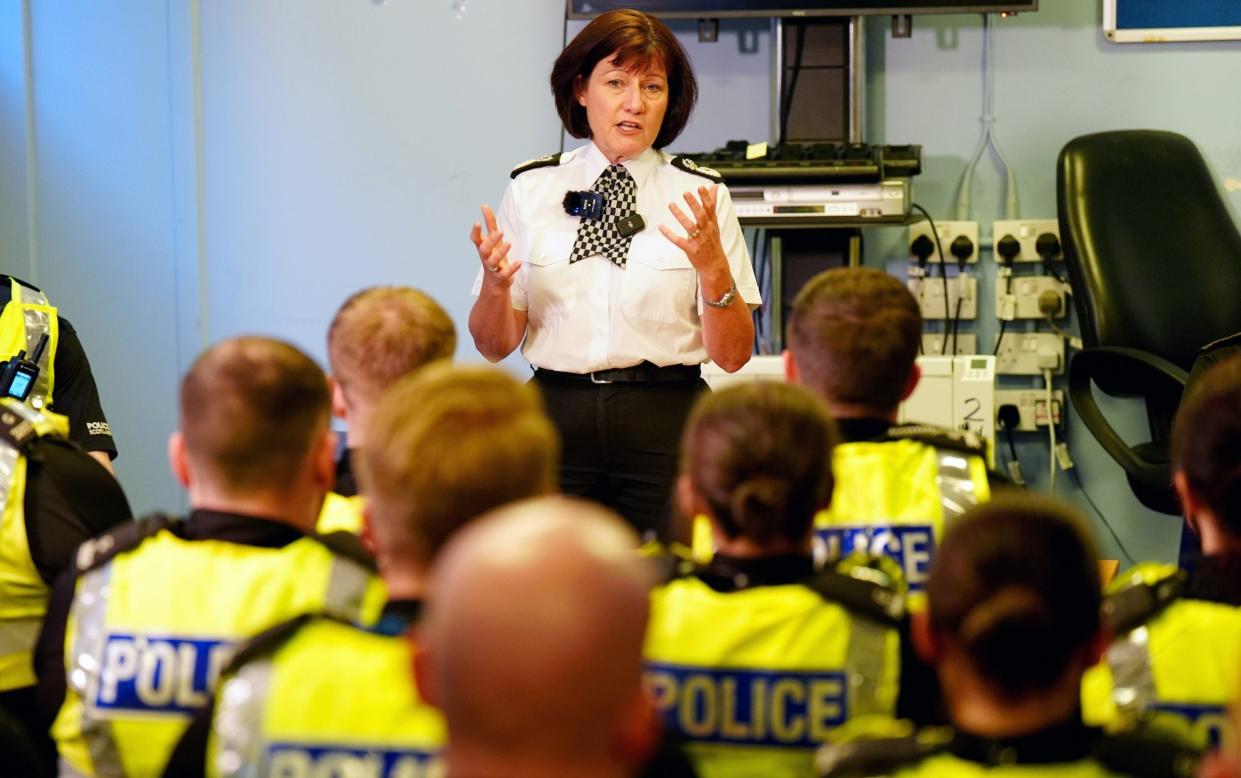‘Millions of pounds wasted sending police officers to court who rarely give evidence’

- Oops!Something went wrong.Please try again later.
Millions of pounds are being wasted on forcing Scotland’s police officers to attend court when they are not needed, the country’s chief constable has said, as she argued England’s system is far more efficient.
Jo Farrell said she had been very surprised since taking up the post in October 2023 at the amount of manpower and money being devoted to sending officers to court.
She said the overtime bill was about £3 million and made a “conservative estimate” that only 15 per cent of officers called to appear actually gave evidence in a trial. Despite this, she said they would be called again and again.
Ms Farrell, who was previously chief constable at Durham Constabulary, said the Scottish judicial system was very inefficient compared with the Crown Prosecution Service in England.
Although she welcomed work done by the sheriff principals of Glasgow sheriff court and Dundee sheriff court to improve efficiencies, she said it was not fast enough.
It emerged last week that Scotland’s police officer numbers have dropped to the lowest level in 15 years.
Police Scotland had 16,356 full time equivalent officers at the end of March 2024 – down 259 on the previous year and the lowest level since the end of September 2008.
Minor crimes not investigated
This decline is the equivalent of at least one officer leaving the force every working day for the past 12 months.
The force previously announced it was rolling out a pilot in the north-east of Scotland whereby some minor crimes were not investigated if they were deemed to require excessive manpower.
Ms Farrell said police officers were “the visible part of the criminal justice system” for distressed victims of crime facing repeated delays in the courts.
She said: “A roads policing officers said to me in the early weeks I was here, each time that case gets adjourned it’s the victim of the case who says to the police, ‘Why is this happening?’.
“Their lives have been disrupted and put on hold. What I’ve observed is a system that’s very inefficient. That is having a significant impact on policing, it is not joined up at all.”
Highlighting the time and resources being spent sending officers to court, she said: “We spent £3 million on overtime and I would estimate a third of those officers were on rest days or annual leave.
“When they call to court, and this is a conservative estimate, only 15 per cent of them will give evidence and then they’ll be called again and again. This is happening to victims and witnesses and members of the public.”
The Crown Office and Procurator Fiscal Service said: “We work with Police Scotland, and the courts service who schedule trials, to have witness availability taken into account when trials are fixed.
“We also work with the police to ensure that cases are ready to proceed. COPFS believes effective case management has the capacity to transform the experience of witnesses in the justice system and reduce unnecessary attendance.”
Cases resolved more quickly
He said a summary case management pilot had resulted in cases being resolved more quickly, with a 34 per cent reduction in first citations of police witnesses to appear in court.
A spokesman for the Scottish Courts and Tribunals Service said: “In the modern system the evidence of the police and professional witnesses can be taken remotely, without the need for them to attend court.”
He also said the pilot scheme, which is operating in Hamilton, Paisley, Dundee, Glasgow and Perth, had been effective in reducing “the volume of late pleas of guilty and late decisions on discontinuation” of cases.
In a direct rebuttal to Ms Farrell’s argument that the English system is superior, he added: “Comparisons with other jurisdictions are complex and generally unhelpful. It may be worth noting that in Scotland, despite the continued increase in the prosecution of serious cases, the number of evidence-led trials and case conclusions are at record levels.”

